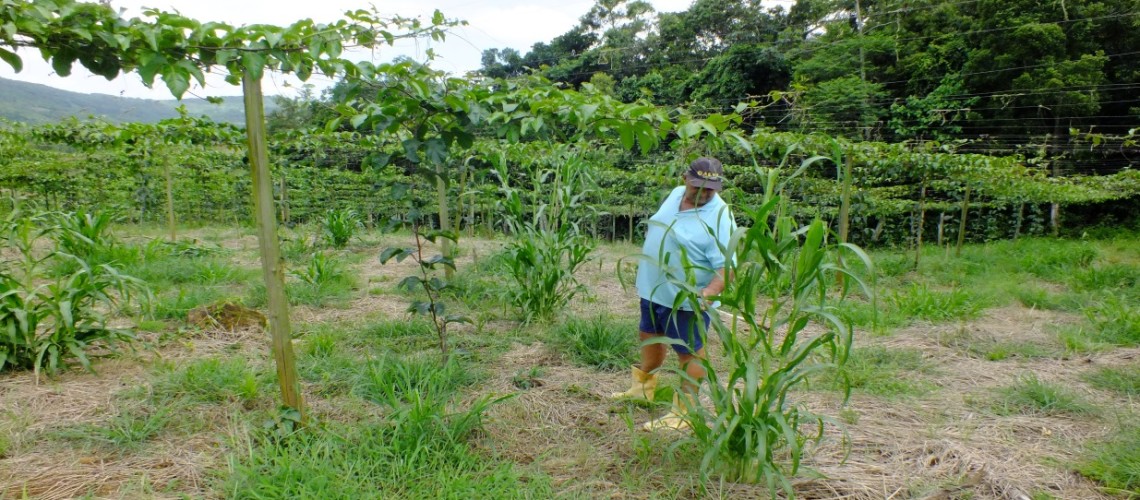Brazilian consumers make farmers quit pesticides
Luiza Fernandes, a family farmer, in the Ecological Farmers’ Market in Torres, on the North Coast of Rio Grande do Sul, sees Green Action Week as an important boost to organic food and farming:
– It influences people. They look at the banner, learn about the amount of pesticides in food and say they did not know.
Centro Ecológico assists families willing to produce without pesticides in the region North Coast of Rio Grande do Sul. The region’s economy is substantially based on conventional banana. About 3 000 people live in Mampituba, one of the 12 municipalities located in the area. The number of calls per month at the local health care centre there is equally high, 3 000 calls monthly.
-There are a considerable number of people poisoned by pesticides. We know that local nurses make the first attendance and send them to hospitals, says the supervisor of the local public health service, Almir Monteiro Correa.
Farmers change to organics
Ana Meirelles, agronomist at Centro Ecológico, explains that the organic banana consumption has gained momentum in North Coast of Rio Grande do Sul after some years of hard work:
-Most farmers have neither trusted in the production of quality fruits without using pesticides nor believed that they would get a good price in the market; this despite feeling the tangible effects of pesticides and knowing that the neighbours have had healthy agroforestry banana plantations up and running for more than 20 years. This is now changing. Centro Ecológico has participated in Green Action Week’s campaigning on Organic Food and Farming for all since 2013. The consumer oriented actions boost our long-term engagement for organic farming in the region, normally focusing on small producers.
The average consumption of pesticides per person is 8.2 liters in the region. This can be compared to the national average of 5 liters/person. Ana met with the consumer Liege Barbosa, who had heard about the food contamination from her son who is a biologist. But she did not fully believe in what he said, until she saw the ad in the newspaper during the Green Action Week 2013 showing the diversity and the amount of pesticides sprayed on vegetables and fruits:
– You hear about it, but to see it, that was different, Liege says.
Organic bananas – a profitable business
It took two and a half years for another family, that of Edgar da Silva Cristovam, in Mampituba, to make the transition to organic cultivation after a course at Centro Ecologico.
Today, his production costs are reduced by more than 50 %. And the price of BRL 1.40/kg, which he gets paid for the bananas, is nearly three times higher than the price of non-organic bananas ( BRL 0.50/kg) . His farmers group, Boa Esperanca, sells their production mostly via a local cooperative to a supermarket chain with stores in several cities in Rio Grande do Sul. In total around 70 000 kg of organic bananas are sold every week in the region. Some of them go to school meals and other to organic farmers’ markets in the larger cities, like Porto Alegre and Canoas, which means that also city consumers nowadays can get hold of healthy bananas.
